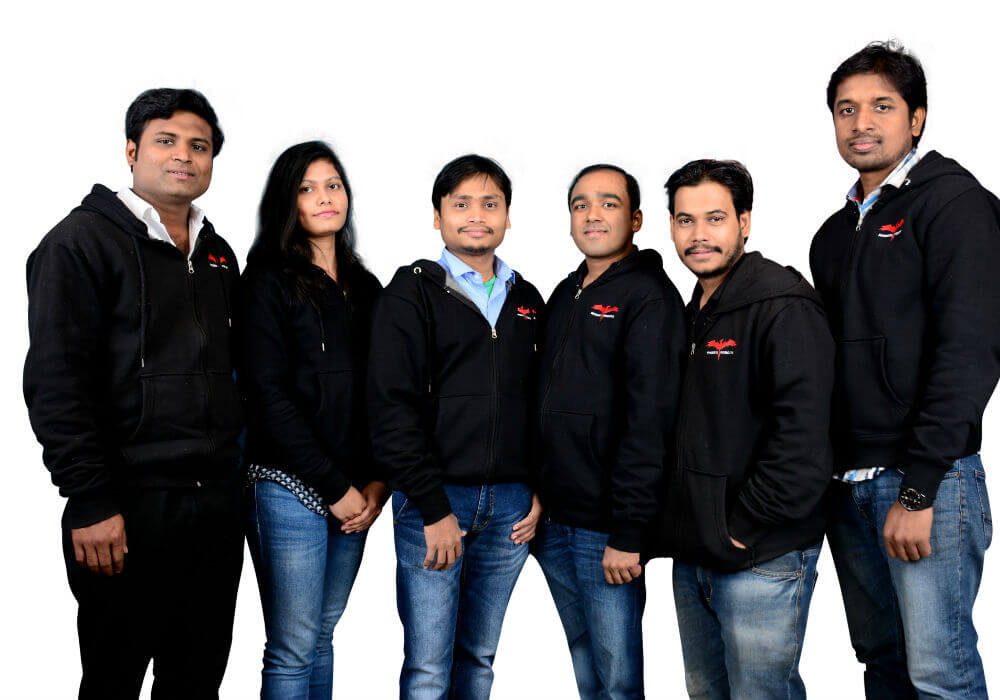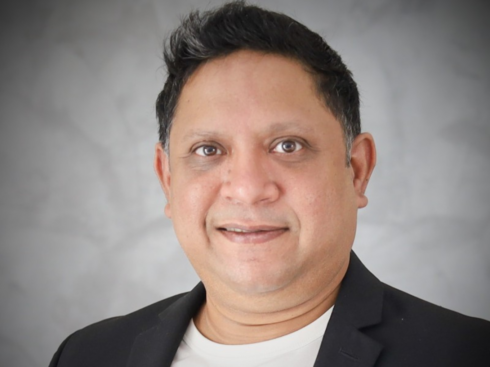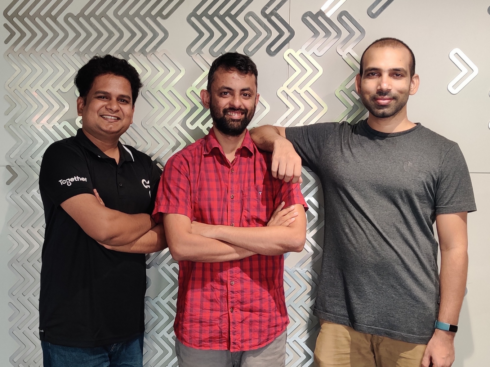SUMMARY
Air Quality Monitoring Device Aurassure To Check Pollution For Industries And Smart Cities
Often, environment is one of the most skewed topics of discussion.
In India, air pollution has almost an apocalyptic effect. The aggressive urbanisation and industrialisation have elevated the pollution level even further. Come winter, Delhi and its adjoining areas suffocate with smog.
A Greenpeace India report says that as many as 47 Mn children live in areas with pollutant PM10 or with particulate matter in the air with a diameter less than 10 microns. In the recent times, some of the cities that have had the worst cases of pollution include Delhi, Uttar Pradesh, Rajasthan, Bihar and Maharashtra.
Taking note of the situation, Odisha-based IoT startup Phoenix Robotix came up with Aurassure – an innovative environment monitoring device that helps industries know the level of their pollutant emission.
The story goes as such!
In 2015, Amiya Kumar Samantaray along with Kishan Kumar Patel, Akanksha Priyadarshini, Asish Sahoo, Nataraj Sahoo and Ashutosha Sarangi founded Phoenix Robotix from NIT Rourkela.
The startup works in the field of Industrial Internet of Things aka IIoT and Wireless Sensor Network (WSN). It launched Aurassure which provides a complete solution for real-time air and weather quality monitoring in Smart Cities.
In short, Aurassure came into existence to help cities to monitor and to better understand the micro-environments in real-time using sensor-based IoT device and data analytics.
What Triggered Aurassure?
The IoT startup was discovered during the BIGShift event series organised by Inc42 in association with Amazon India. Its product, Aurassure, captures different air quality parameters from widely distributed locations and showcases in a web platform with a mobile app to visualise and analyse the ambient air quality.
The product was initially aimed at a solution for industries, keeping in mind the mandated Central Pollution Control Board guidelines of ambient air quality monitoring by the industries themselves, but Aurassure found a bigger scope with the inception of smart cities.
The founders identified some key issues in the air monitoring system, Amiya claimed, “The existing tools and equipment used for pollution monitoring by the government organisations across the world are not scalable and sustainable. These devices are highly expensive, occupies exorbitant space, are bulky and consumes excessive power.”
Apart from this, the devices use consumables resulting in demands of regular maintenance by trained professionals adding to the operational cost. Due to such high cost of implementation, most of the developing countries like India end up with sparsely distributed devices leading to lack of visibility, granularity and substantial monitoring of air quality.
Due to the sparsely distributed devices across the country, the government is facing challenges to understanding the changes in their micro-environments due to lack of data. Lack of proper information is leading to improper policy frameworks, city planning and at times, end up with improper decision making, which ultimately results in the public disinterest.
According to Amiya,
“The real causes of air pollution in different cities still remain unidentified and therefore, due to the lack of awareness, citizens fail to realise the intensity of this exponentially growing issue.”
The air quality monitoring was a segment that lacked a complete end-to-end solution to meet all the requirements for the problem and the team already had some experience working with various industries in the pollution monitoring segment, so they decided to develop a complete integrated IoT based solution for monitoring the air quality of the cities in real-time.
Hence, the team of Aurassure felt an urgent need of a systematic and well-connected network of efficient air quality monitoring systems in huge deployments for establishing sound city planning and smart city implementation, and in turn spreading awareness among citizens by reaching their personalised levels.
Aurassure is working on the issue of air monitoring problem with two different customer segments; one being the medium and large scale industries and the other one being Smart Cities.
Amiya reasons why this was the approach, “We decided to start with providing some solutions to the industries as Rourkela is surrounded by a large number of industries. We made visits to different industries and wanted to know about their requirements for any customised solutions.”
Then the Government of India had also announced various Smart Cities. Amiya further said, “We wanted to be a part of the emerging market. We studied the requirements of various solutions proposed for the Smart Cities.”
From Aurassure To Oeuvre
Today, Aurassure is offering its air and weather quality monitoring solutions in smart cities. The team is also planning to add more sensors for multiple applications for smart-cities under Aurassure vertical.
Delightedly Amiya said,
“We had started from an absolute zero. We’ve generated a revenue of approx. $35K before receiving any outside funding.”
In 2016, the company went on to raise Seed funding of $55K from three local angel investors including Manoranjan Mahapatra, Amit Gupta and Amrit Biswal. Currently, the team is planning to raise a Pre-Series A round of approx. $700K to $800K in the next six months time frame.
A major thrust to its success story is given by the fact that PSU major Steel Authority of India has implemented Aurassure in its Rourkela plant after it received several complaints from neighbouring townships and villages about emission of harmful pollutants.
With permission from the regional office of State Pollution Control Board, Odisha, and Rourkela Steel Plant, Aurassure was installed near the fencing of the plant to enable fence-line monitoring. Acting on the data, the plant authorities were able to cut down chances of further emission. The solution also provided a pollution trend analysis, helping the plant authorities to plan their operations so as to minimise pollution to neighbouring residential places.
Aurassure claims to have been successful in maintaining a growth rate of 300% for the last two years and this year, the team claims, it will be closing with approx. $400K in revenue.
Amiya asserted, “We are already profitable from the first year itself due to lower operational expenditure and being established at Rourkela, which is nearer to our customer geographies. We are mostly targeting two major market segments – Industries & Smart Cities.”
As claimed, the IoT startup currently has more than 70 paying customers including top brands like Tata Steel, Jindal Steel & Power, Aditya Birla Group, Honeywell Automations & Dalmia Cement etc.
This is the story of a startup that has grown from a team of six members to more than 25 members within last two and half years. The startup has also been successful in being counted in the top ten innovations for smart cities in “Innovate for Digital India Challenge (IFDIC) 2015” hosted by DST and CIIE, IIM Ahmedabad and mentored by Intel and UC Berkeley. This was a turning point for the team as it gave the team a business-oriented direction and helped them in converting the idea into a strong business proposition.
The IoT startup was also selected among the top three startups in the impact challenge for developing a solution for water quality monitoring and awarded by the honorable chief minister of Karnataka. Adding to its galore of achievements, the IoT startup was also shortlisted to participate in the “Leader in Innovation Fellowship (LIF)” programme organised in the United Kingdom funded by the UK Government Department of Business, Energy and Industrial Strategy in 2017.
As far as competition is concerned, on one hand, the device is competing with high-end ambient air quality device manufactured from across the globe such as Thermofischer Scientific, ABB, Chemtrols, Aeroqual, Horiba, etc.
As most of these devices have a foreign origin, the customers are paying a heavy technology price without proper services and maintenance support.
The traditional devices require in-depth knowledge in order to maintain and operate. Whereas, Aurassure device is a small, lightweight and easy to operate. It can also be powered by solar power in a street light pole installation. It will enable monitoring of street resolution pollution information for smarter and livable city.
“We have applied for one patent and some more is in the pipeline. Two trademarks and one design registration has already been granted,” says the founder. Currently, the startup is working with Honeywell and ICLEI for different smart cities of India.
Amiya says, “Though our product is competing with their product line, we are completely different in terms of technology used to make these devices, in turn reducing the price almost by 20-30 times as compared to the existing devices.”
On the other hand, the device is also competing with companies using similar technology. To name a few are brands like Bosch, PAQs, Oizom, AQmesh, Libelium, etc. who are providing similar solutions. “Our solution is competitively better as it can support customisable sensor selection depending upon the application requirement,” tells Amiya.
The team claims that the solution is very easy to operate and requires zero technical expertise. The device comes with remote calibration and configuration features and consists of no movable parts leading to zero wear and tear.
The Ecosystem And The Future Market
In India, there seems to be a delay or slow growth in the initial phase of air monitoring system right now due to lack of awareness and technology adoption among the people.
Amiya states, “Considering the segment in which we are working right now, i.e. real-time Environmental Monitoring, people don’t realise the necessity of such a system. But if we compare it to other developed economies like the US, UK, Europe, etc. and how they consider climate change as one of the major issues. They have a lot of awareness about environment protection and the Govt. is spending a lot of resources for various policies towards environment protection.”
Apparently, the adoption of technology and data-driven decision making is also much faster in the developed countries. But the situation is improving gradually and people are becoming more and more aware of the effects of environmental changes.
Amiya agrees,
“The technology adoption time-lag is also decreasing. We are also coming up with more number of solutions in the next two years under the umbrella of Aurassure. Also, we are growing our customer base to industries, research institutes, NGOs and various Environment Consultants.”
Speaking on the startup ecosystem of India, Amiya recalls that there were no major startups in Rourkela at the time when he and his team were starting. He adds, “But it’s getting better day by day with the support from both the Govt. of Odisha as well as the Govt. of India. Nowadays, a number of startups are coming out of small cities of India, Rourkela being no different.”
But Rourkela is still behind other top startup hubs of the country like Bengaluru, Mumbai and Delhi, etc. It is indeed a big challenge to be an entrepreneur in a country which is yet to do much more to boost the ecosystem.
Reiterating the same, Amiya says, “Yes, it’s really challenging to be an entrepreneur in our country. In other developed economies like the US, UK, Europe, etc. the start-up ecosystem is much more vibrant than it is in India, with the students being more interested in starting their own ventures and the entire ecosystem supporting the culture. In India, it’s comparatively tougher for a student to follow his passion and start his own venture and getting the right opportunities for the same after completing education. But the time is changing and the Govt. of India is encouraging more and more start-ups in the country through increasing awareness and promoting various policies.”
With India opening up to the startup idea and industrialisation scaling up, products like Aurassure will certainly go a long way.
Markets and Markets in its research titled ‘Air Quality Monitoring Market’ has given a forecast period of 2016 to 2021. The market is expected to reach $5.64 Bn by 2021, at a CAGR of 8.5% from 2016 to 2021 in India. Along with other startups such as Sameer Air Pollution Control, Air Quality Index, AirVisual, etc. Aurassure will be able to tap into the market opportunities.
Editor’s Note
The Central Pollution Control Board (CPCB), a statutory organisation under the Ministry of Environment, Forest and Climate Change, provides real-time air quality measurements across all states and UTs through its 683 established stations, free of cost.
The stations are further run with the help of premier environmental research institutes such as the National Environmental Engineering Research Institute (NEERI) and IITB. Maintained at the research and policy-framework level, these stations usually measure atmospheric pollutants through all available methods such as gravimetric, wet-chemical as well as continuous online methods.
However, the CPCB’s air-quality monitoring instruments and their measurements are not hyperlocal and cost-effective as required by most of the industries such as Pharma and healthcare.
Blume Ventures’ Partner Sanjay Nath is all ears for investments in environment-related startups, given that these startups are trying to solve the country’s burgeoning pollution problem.
Claiming to meet the hyperlocal demands, it won’t be an easy and green turf for Aurassure to grazing in.
With the first mover in the market, big players like ABB and Thermo Fisher have developed and patented a number of sensors and technologies. However, adopting their solutions in the real world is not everyone’s cup of tea, as they mostly offer CMC/AMCs only which are very costly.
To meet the cost-effectiveness criterion, Aurassure uses sim card-enabled wireless smart sensors with small form factors that could easily fit anywhere and broadcast data. Inc42 has not been able to verify whether they meet CPCB/NAAQS issued methods of measurement and accuracy requirements for all the 12 primary pollutants.
What’s more interesting is that the IoT startup Phoenix Robotix product – Aurassure deploys solar panels to keep the air quality monitoring process green. Recently, a number of companies have jumped the pollution bandwagon. Enriching their data journalism, India’s data journalism behemoth India Spend has also started providing free real-time air quality index across the country.
The firm has deployed 40 low-cost quality sensors fitted with GPRS transmitters across major cities in India. Non-profit platform IODA and Chennai-based Sensors Without Borders have also deployed similar low-cost quality sensors to provide real-time air quality index.
In a scenario, where data is becoming free, the focus is fast shifting from monitoring to control, from acquiring information to cutting-edge technology implementations like cube sensors and smoke sucking towers.
As the awareness pertaining to air pollution is fast increasing, so is the mushrooming of startups in the vertical. In such a scenario, for the Aurassure team, the product should remain at the centre of their design thinking.



























